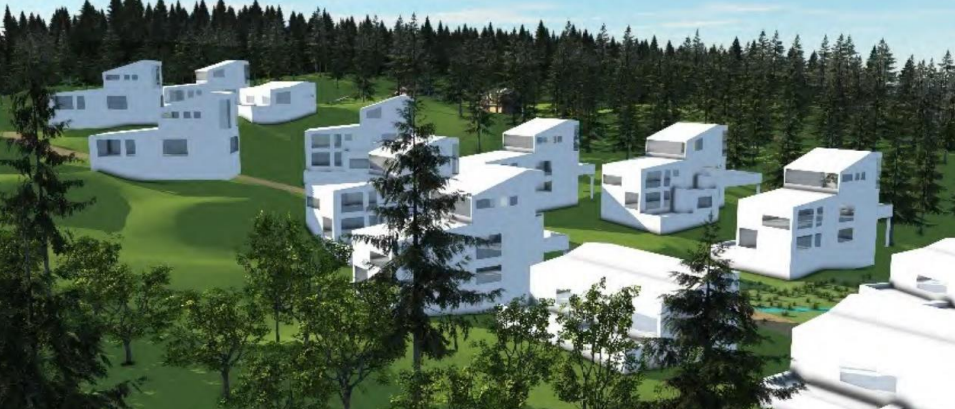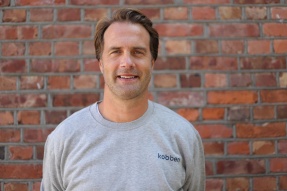In the spring of 2021, Kobben helped write a report for Grønn Plattform - a collaborative project associated with Skoppum Eco-Village. On behalf of Scanwater and Vannklyngen, we prepared a report focusing on the core values of the project, including the need for investment in water and sewage in Norway. The aim was to create a good visual report, which highlighted the good points of Scanwater and the rest of the project group.
About the project
At Skoppum, there are plans to build Skoppum Eco Village - also called the environmental village , a future-oriented vision where up to 160 homes will be self-sufficient in energy. According to Scanwater, the Environmental Village at Skoppum will be a pioneering project to create a sustainable society. To implement the concept, everything from architecture, energy, water and drainage, and other infrastructure must have a common thread and a circular economy.
This is a collaborative project between Horten municipality, architects, Vannklyngen, students at NMBU (Norwegian University of Environmental and Life Sciences) and Scandinavian Water Technology AS (Scanwater). Scanwater belongs to the Malthe Winje group and works to create solutions for the humanitarian market, such as water and sanitation solutions in crisis-affected areas. CTO of Scanwater, Georg Finsrud, says that they also work a lot with municipalities, where they offer solutions specially adapted to the needs of each municipality.
-We have concepts for Norwegian municipalities when it comes to water preparedness. Safe and good transport of water when there is a crisis, such as when there was a landslide in Gjerdrum in winter 2020. Then the population had to get water from other places. We offer many different solutions, including setting up pumps, heating modules and offering water bags that people can get at the door. Together with the municipality, we set up a plan.

Kobben's role
The project at Skoppum has been granted a preliminary project. This is aimed at Skoppum as an area, where the plan is to build housing estates with sustainability in focus. The facility will reduce housing costs, be energy efficient and not least have a strong focus on climate and environment. In other words, the plant will reduce greenhouse gas emissions, have less consumption and more reuse of water, and use sewage and waste for biogas production.
This is where Kobben came into the picture. Scanwater and Vannklyngen wanted help in designing the report used in this project. They had the necessary facts, but wanted guidance on how to get it out in the best possible way.
We needed help to structure our input and help to present it neatly and neatly. And Kobben did it in an absolutely fantastic way, so we have received a report that is very nice, says Georg in Scanwater.
- Kobben also came up with new ideas when it came to how we can save money and this with the business model, which we had not even talked about. So for us, the report has become an important tool that we use in this project (Skoppum), but also something we can present in many other contexts. It just gets more and more interesting to present, says Georg.
What has been done is, among other things, to look at calculations of what it costs to invest in the Green Platform project, what it costs to operate it and what levels to set up with regard to water and sewerage fees in the future. Georg says the project at Skoppum is also somewhat connected with the public sector has gone out and told about the delay in repairing pipes lying in the ground.
-It takes hundreds of billions to repair it. And then you can imagine that having your own systems that save water, purify water locally, capture the nutrients in the water locally and use it for food production locally will have a positive effect on this. And we think it will have great social significance. The load will not be greater, it will be less, says Georg.
Strong cooperation
-What is fun about the project at Skoppum is that the municipality does it for Horten to shine. Horten will attract people, new jobs will be created and it will be future-oriented and innovative. Horten has set up a working group consisting of architects, engineers, and Vannklyngen is involved. It is a working group that will really complement each other, says Georg.
In addition, NMBU has put together a separate student group that actively participates in the project at Skoppum. They have already inspected the area at Skoppum and written a thesis on the environmental village. And this is not the first time Scanwater has collaborated with the students at NMBU. For over 20 years, Scanwater has been involved in the development of the university at Ås, where they have established their own test facility for purification of drinking water and wastewater, and work closely with the master's students.


